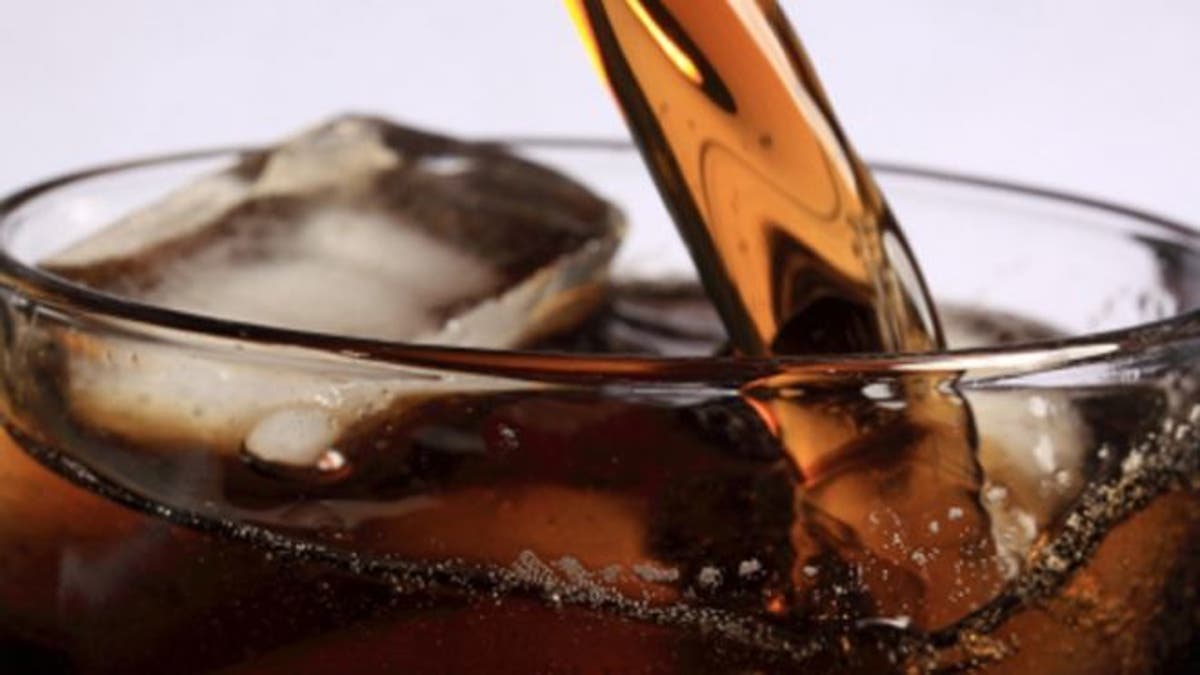
You probably heard about a new study published in the journal Obesity, which says diet drinks can help people lose more weight than drinking plain water. But you’ve probably also read time and time again that diet soda drinkers are more likely to be obese: one report found that two-can-a-day diet drinkers had a 54 percent chance of becoming overweight or obese, compared to 32 percent for those who drank the same amount of regular soda. You may have also heard about research linking artificial sweeteners to increased sugar cravings.
So if this latest study has left you confused, that’s understandable. Here’s the gist of the study, my take on how to put the results in perspective, and why I believe you should keep reaching for water.
Health.com: 10 Reasons to Give Up Diet Soda
In a nutshell, two groups of men and women were introduced to the same diet and exercise program, with one exception. One group drank water, and the other downed diet soda. After 12 weeks, the diet soda drinkers lost 5.95 kg (about 13 pounds) compared to 4.09 kg (just under 9 pounds) for those who drank water. The study authors speculate that the water group may have lost less weight because they indulged their sweet cravings with foods that, unlike diet soda, contained calories—including yogurt, cookies, and ice cream. The study’s co-author, Dr. Jim Hill of the University of Colorado’s Anschutz Health and Wellness Center, told CNN, “It makes sense that it would have been harder for the water group to adhere to the overall diet than the (artificially-sweetened beverage) group.” In other words, you have to satisfy your sweet tooth somehow.
Health.com: 20 Snacks That Burn Fat
Despite the four extra pounds diet-soda drinkers lost in this study, I just can’t recommend drinking diet OR regular soda. We’ve all heard about the dangers of excess sugar, and regular soda is the top source in the American diet.
And artificial sweeteners are well, artificial. As a proponent of clean eating, I believe that everything we consume should serve a natural purpose—either to fuel our activity, help our cells perform their vital functions, or provide the building blocks for healing, repair, and cell maintenance. Artificial sweeteners don’t do any of this, and I have concerns regarding other studies about their potential unwanted effects, including a study out last year linking diet soda to depression, and one from 2011 about diet soda and stroke risk.
Health.com: 16 Ways to Lose Fat Fast
But this study does bring up an important point: many people may need to eat something sweet on a regular basis. In my private practice, I find that clients with sweet cravings can’t completely nix treats—trying to do so often leads to overeating other savory foods, or breaking down and binging on “forbidden” sugary foods. But there are ways to incorporate goodies made with natural sweeteners into an overall healthy diet, while still minimizing your intake of added sugar—and getting your fix from foods that contain beneficial nutrients.
Health.com: 25 Surprising Ways to Lose Weight
I’m talking about options like dark chocolate, baked goods made with whole grain or nut flours, ice cream made with plant based “milk” like coconut or almond, and desserts that incorporate antioxidant and nutrient-rich fruits, like cobbler. Yes, they contain calories, but you can prevent calorie overkill—and weight gain—by making room for occasional sweet treats within a nutritious meal. For example, if you’re really craving an oatmeal-dark-chocolate-chip cookie, ditch the bread on a sandwich and opt for a garden salad topped with lean protein instead. Or, if you’re out to dinner and you want to split a dessert, forgo the bread basket and starchy side dish and order an entree of steamed or grilled veggies and lean protein. In my experience, this kind of give and take is not only doable socially and emotionally, it’s also balanced and sustainable, which results in successful long-term weight management.
Health.com: 24 Food Swaps That Slash Calories
So if you’re trying to lose weight, I say stick with good old H2O; and if you have a sweet tooth, manage it in savvy ways that involve enjoying real, natural foods. And remember that your weight is a side effect of your relationship with food. Finding balance and eating in ways that make you feel nourished, energized, and well are the real keys to a healthy body and a healthy weight.
